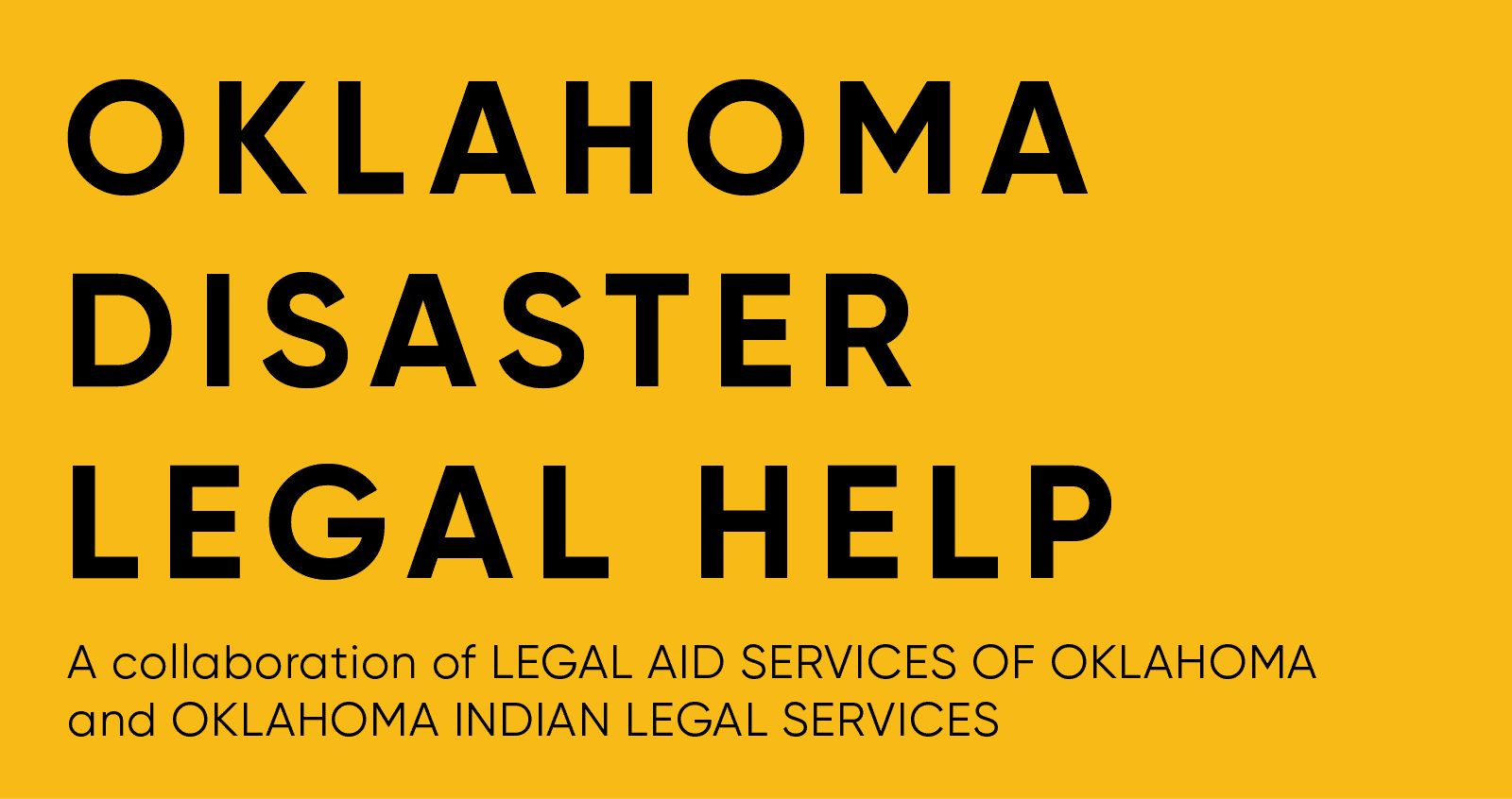Disaster events can lead to family law issues.
The aftermath of a disaster can be very stressful, and it is not uncommon to see new family law issues such as:
Domestic violence
If you are experiencing domestic violence in your home after a disaster, a protection order may be an option. A protection order is there to protect you from abuse or harassment. If you want to file a protection order, be careful when do you research online. Browser history can reveal to an abuser that you are searching for help. You should use the internet at a local library, at a friend’s house, at work or a password protected electronic device. There are two types of protection orders:
- A Domestic Abuse Protection Order which is for those in a close relationship who are being abused. This order is granted because someone has attempted, threatened, caused injury, or intimidated the other person by credible threat, or engaged in sexual penetration without consent.
- A Harassment Protection Order which does not need to be of close relationship. This order requires a number of telephone or personal contacts that seriously terrify, threaten, or intimidate you and serves no legitimate purpose.
Protection orders can be filed free of charge with the district court clerk. After you file, the clerk will give the form to the judge who may sign the order ” ex parte”, meaning you do not have a hearing before you get notice. When the other party gets notice of the order, they can request a hearing.
If you are wanting to leave the situation and need assistance finding the nearest shelter to you, contact Domestic Violence Hotline at 800-799-SAFE (7233); Spanish line at 877-215-0167; TTY 800-787-3224, or the National Sexual Assault Hotline at 1-800-656-HOPE (4673). If you are in immediate danger, contact your local police department or call 9-1-1.
Custody actions
In Oklahoma, if there is no custody order from a court, BOTH parents are equally entitled to physical custody of any children born during the marriage or born to the parents before a marriage and there is agreement that the husband is the father – usually by putting his name on the birth certificate. That means that either parent can have the child living with him/her until a court order says otherwise. To get a custody order from the court, either parent can ask the court for custody. This is a called a Petition for Custody. Anytime an individual “asks” the court to make an order, it is called a “Petition.” Most often, a Petition for Custody is included in a divorce case; but, parents who are seeking a legal separation or parents who are unwed may also ask the court for a custody order.
First, a court must determine if it has the power, or “jurisdiction,” to decide custody of children. If a child has not lived in Oklahoma for 6 months with a parent or somebody taking care of them in Oklahoma, a court in Oklahoma may decide that another state has the power or “jurisdiction” to decide jurisdiction. If your child does not live in Oklahoma or has come to Oklahoma within the last 6 months, because this is a complicated problem, you should consult with an attorney to help determine which state should decide which parent should have custody.
There are several types of custody under Oklahoma law. You must know that when the court decides custody, it is deciding legal custody and physical custody. Both are usually combined into one term. Physical custody refers to where and with whom the child lives. Legal custody refers to a parent’s right to make decisions about the child’s education, medical care, religion, etc. In either case, the court can award either sole or joint custody. The different types of physical and legal custody are:
- Sole Legal Custody – only one parent has the right to make legal decisions for the child about education, health care, religion, etc;
- Joint Legal Custody – both parents have the right to make legal decisions for the child about education, health care, religion, etc;
- Sole Physical Custody – the child lives with one parent and the other has specific visitation rights; or,
- Joint Physical Custody – the child resides with each parent for a substantial amount of time during the calendar year.
The court can also make a “Temporary custody” order. Temporary custody refers to a physical and legal custody agreement made by the parents or ordered by the court that is in place until a final order from the court is entered. It is important to know that the court’s final order may not be the same as the temporary order. This often happens after a disaster due to living condition, income status, or other barriers that come up.
Child support agreements and modifications
In Oklahoma, to determine custody between parents of a child, the court will decide what is in “the best interests of the physical, mental and moral welfare of the child.” To do that, a court may consider factors such as:
- The wishes of each parent and sometimes the child (depending on the child’s age).
- The quality of the relationship between the child and the parents;
- The relationship with grandparents, siblings and or other significant people in the child’s life;
- The child’s relationship to his or her school, religious institution and community;
- The mental and physical health of all parties;
- Any past, present or possible future spousal or child abuse by either parent;
- Any past or present drug or substance abuse by either parent;
- Any past or present criminal actions by either parent other than minor infractions or less serious crimes that were committed a long time ago with no recent criminal actions;
- Which parent has been involved in the past in getting the child to doctor and dentist appointments;
- Which parent has been involved in the child’s schooling, attending parent teacher conferences and going to school functions;
- Which parent is most likely to provide a safe home environment for the child and not engage in activities in the home that can cause health problems for the child. Some judges like to find out who smokes in the home – especially if the child has asthma or allergies. Another safety issue is using a car seat for younger children;
- The willingness of a potential custodial parent to foster a relationship and visitation with the other parent;
- The stability in the child’s home life that a parent is able to provide for the child;
- A parent’s ability to provide for the material needs of the child;
- The demonstrated ability of each parent to make good decisions regarding the child’s welfare. Whether there are siblings or half-siblings with established close relationships (courts tend to keep siblings together.); and,
- A parent’s ability to spend time with the child.
If you are looking to change a Final Custody Order, you must file a “Motion to Modify Custody Order.” This is almost always done in the same court and in same case that issued the order. This motion asks the court to change the order and should state the reason why the change should happen. In Oklahoma, if the custody order is a “Sole Custody Order” as described above, there must be a “permanent, material and substantial change in circumstances that affect the best interests of the child” before the court will change a Final Custody Order. After finding this change the court will look to the factors listed above to decide whether a change in custody would be in the child’s best interests. The court will NOT change the order due to minor changes in circumstances such as small changes in income. There must be significant changes that affect the child’s life, such as an abusive situation or the custodial parent moving out of state, before the court will change an order. There is some case law that indicates that if a child is old enough, (usually in the teens) and mature enough, the child’s desire to change custody can be all that is needed to change custody. Once a Motion to Modify has been filed, the court will set a hearing date. At the hearing, the parent seeking the change will have to prove to the court that there is a permanent, material substantial change in circumstances and that the change of custody is best for the child. Since this can be a difficult process, one should probably seek the help of an attorney before filing a Motion to Modify Custody.
The standard to change custody orders is different if the custody order is a “Joint Custody Order.” Then, the court must be shown that the parties are not able to cooperate and agree on the best interests of the child. If that happens, either or both parties can go back to court to ask the court to terminate the joint custody and then award sole custody. The Court will look to the same factors mentioned in the first custody decision.
Guardianships
Guardianship is a legal proceeding in which the court can appoint a person to take care of another person and/or their property. The person who is appointed by the court is called a guardian. The person for whom the guardian is appointed is called a ward.
In Oklahoma, you may seek a guardianship over an adult or a child. There are three basic types of guardianship:
- general guardianship– a guardianship over the ward and/or all of the ward’s property in Oklahoma.
- limited guardianship– the guardian has only limited powers over the ward and/or the ward’s property; and,
- special guardianship– a guardianship in which a guardian is appointed for an emergency purpose and usually lasts for no more than 10 days.
If the court appoints a guardian, the guardian must follow certain rules created by the court. A guardian must:
- be responsible for the care and control of the ward.
- carefully follow any directions given by the court.
- have enough contact with the ward to ensure that the ward is safe and healthy.
- report to the court, usually every year, concerning the health and finances of the ward.
Whether the guardianship is for an adult or a child, the reason for needing one is basically the same to provide for the legal care of an individual who cannot care for him or herself. A minor means a person under the age of eighteen (18) years. Guardianship over a child is usually granted when the court finds that the guardianship is necessary. In most cases, the guardianship of a child is necessary when the parents of the child are unable to care for the child. Most guardians of children are close relatives, such as grandparents, aunts or uncles. In the case of the death of the parents of a child, the parents may have chosen who they would like to serve as guardian of their children by nominating that person in their will.
Guardianship over an adult is granted when the ward is fully or partially incapacitated. An incapacitated person is one who is over the age of eighteen (18) and who is unable to make decisions regarding health or finances for him or herself.
A guardian may be removed if the court finds that he/she is not performing the duties required by the court. The court may remove a guardian or terminate a guardianship if the court finds that the guardianship is no longer necessary. In either case, in order for the guardianship to end, the court must order it to be terminated.
Disasters affecting Students
What happens if I have to move after the disaster, where do my children go to school?
Children who are displaced by a disaster have the same rights as homeless children under federal law. The McKinney-Vento Act (42 U.S.C. §§ 11431 et seq.) provides for the education of homeless children.
What children are considered homeless and eligible for McKinney-Vento protection?
Children (ages 3-21) are considered homeless if:
- They lack a fixed, regular, and adequate nighttime residence.
- They have lost housing and are now staying with friends and family (doubling up).
- They are living in the following places:
- an emergency shelter (including Red Cross disaster shelter or FEMA mobile home)
- a transitional shelter
- a motel
- domestic violence shelter
- abandoned at a hospital
- a campground
- a car
- on the street
- an abandoned building
- a bus or train station (or somewhere similar).
- Any child who has a primary nighttime residence that is a public or private place not designed for or ordinarily used as a regular sleeping accommodation for human beings.
- A migratory child.
- A child that has run away or been forced to leave his/her home.
What rights do children have under the McKinney-Vento Act?
After the disaster, displaced survivors have the choice to send their children back to the last school they attended (school of origin), or they can send them to the local school where they are now living. The children have the right to immediately enroll in school even if their school records have been destroyed. The children have the right to attend school while the parents and school officials work to find their school records and immunization records. If the children are living with a caretaker (other than their parents), the school cannot require that the caretaker obtain guardianship over the children.
Homeless children are entitled to the same right to transportation as other children. This means that they have the right to school transportation to and from their school of origin. They have the same rights to special education and other special services. They have the right to free or reduced meals if they are eligible. The school district cannot have a school or classroom specifically designed for homeless children. Children in preschool have the same rights to attend preschool as other children.
What if the school will not enroll the student?
If the school is not acting in compliance with the McKinney-Vento Act, the first step is to complain to the principal. If that does not work, the next step is to involve the school district’s homeless liaison person. Under federal law, every school district must have a person designated as the district’s homeless liaison. This information is often available on the district’s website or through a call to the superintendent’s office. Depending on the size of the school district, the person may work full-time as the homeless liaison, or it may be one of many hats that they wear. If a complaint to the homeless liaison for the district is not successful, a complaint can be filed with the Oklahoma Department of Education’s homeless liaison.






